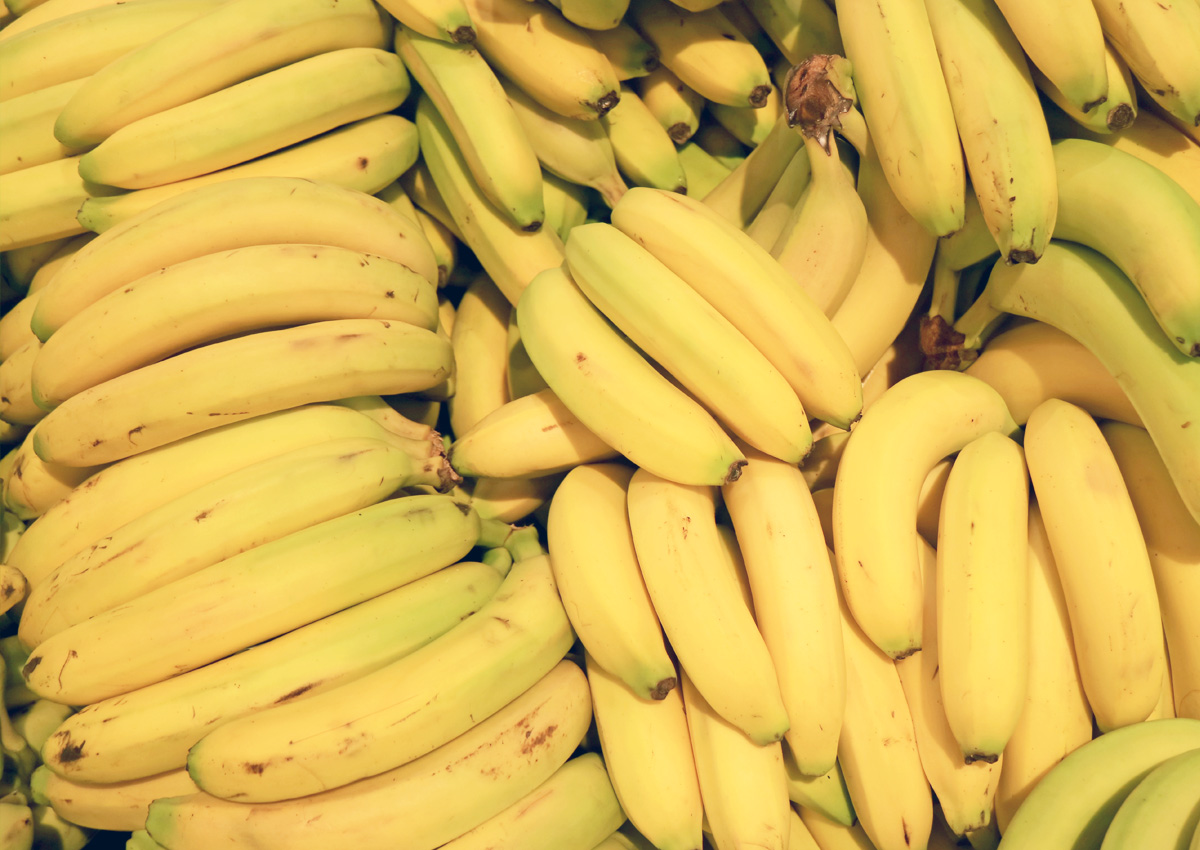
Breakthrough in Panama Disease Control in Bananas
November 2, 2022| |
In the 1950s, Panama disease decimated the world's banana industry, which was helped by the introduction of a new Cavendish variety. However, a new race of the fungus, known as Tropical Race 4, recently swept across the continents and through the Cavendish banana plantations. All efforts to control the disease in Cavendish bananas have, so far, failed.
Tropical Race 4 is of particular significance as Cavendish bananas account for about 40 percent of world production and more than 90 percent of all exports. Now, scientists at the University of Exeter provide hope that Panama disease can be controlled by a particular class of fungicides. The Exeter research team led by Professors Gero Steinberg and Sarah Gurr used a multi-disciplinary approach to better understand why chemical control of Panama disease failed. By combining expertise in cell and molecular biology, bioinformatics, and plant pathology, the team revealed that all major classes of fungicides do not work against the pathogen and provide insight into the molecular reason behind this "resistance".
The researchers discovered that a more specialized class of fungicides, not previously used, suppress Panama disease and maintain banana plant health in the presence of the pathogen, opening new avenues to develop efficient control strategies and providing a significant step in the fight to protect this valuable crop.
For more details, read the article on the University of Exeter website.
| |
You might also like:
- Researchers Develop Cavendish Bananas Resistant to Panama Disease
- Scientists Race to Save Bananas from Panama Disease
- Researchers Use CRISPR-Cas9 for Gene Editing of Cavendish Banana
Biotech Updates is a weekly newsletter of ISAAA, a not-for-profit organization. It is distributed for free to over 22,000 subscribers worldwide to inform them about the key developments in biosciences, especially in biotechnology. Your support will help us in our mission to feed the world with knowledge. You can help by donating as little as $10.
-
See more articles:
-
News from Around the World
- Scientists Sequence Honeycrisp Apple Genome
- Australia's OGTR Invites Comments on Commercial Import and Distribution of GM Chrysanthemum
- Prospects of Purple Tomato in Australia
- ISAAA Webinar: Research and Development of Biotech Crops in the Philippines
- India's GEAC Recommends the Environmental Release of GM Mustard DMH-11
- Research Team Presents Circadian Clock Insights that Could be Key to Increased Wheat Yield
- UK’s Precision Breeding Bill Enters House of Lords
- Breakthrough in Panama Disease Control in Bananas
-
Research Highlights
- Drought-tolerant Sugarcane Performs Well in Chinese Field Trials
- Rice Genes Reveal Alternative Sources of Rice Blast Resistance
-
Plant
- CRISPR Technology Market to Drive More Business Opportunities
- Government Regulations Affect Public Perception on Gene-edited Crops -Study
-
Read the latest: - Biotech Updates (December 17, 2025)
- Gene Editing Supplement (December 17, 2025)
- Gene Drive Supplement (February 22, 2023)
-
Subscribe to BU: - Share
- Tweet

